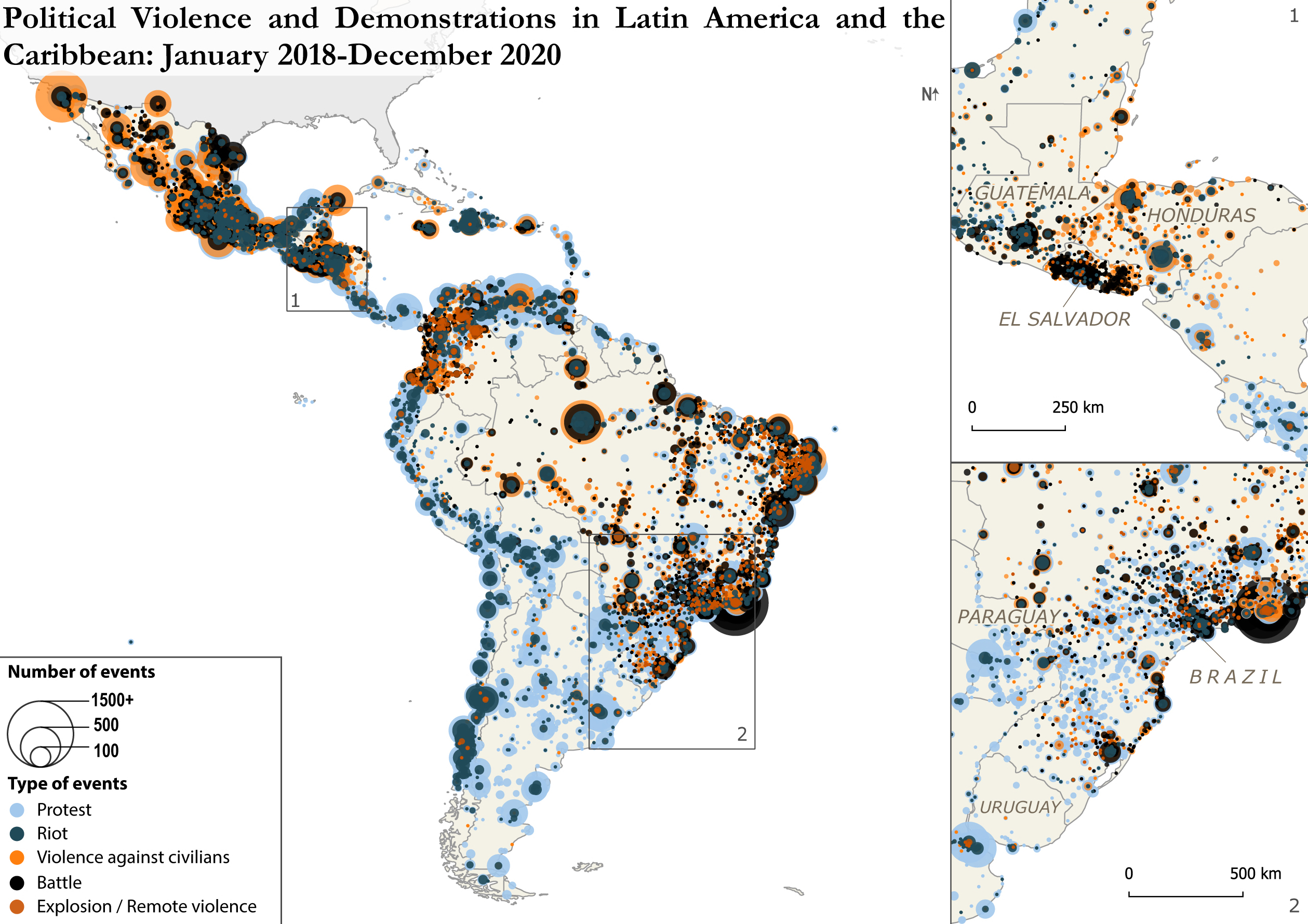9 December 2020: Historical back-coding extends ACLED’s coverage of Latin America & the Caribbean1ACLED’s Latin America & Caribbean dataset covers more than 40 countries and territories across the region. For a full list of country/territory and time period coverage, click here. back to 2018, adding more than 44,000 events. The new data include over 21,600 political violence events, over 20,900 demonstration events, and over 1,500 strategic developments. These events caused over 21,100 reported fatalities, more than 65% of which were civilians.2This figure only includes fatalities from violence directly targeting civilians. It does not include ‘collateral’ fatalities or civilians killed in the crossfire of a battle. As such, the number is assumed to represent an underestimate of total civilian fatalities from conflict and political violence. The back-coding release expands ACLED’s full dataset for Latin America & the Caribbean to more than 124,000 total events from the beginning of 2018 to the present. Data are freely available for download and updated weekly.
Access our Latin America & Caribbean Resources page for new analysis and an interactive dashboard.
Latin America & Caribbean Dataset: Regional Figures
Total number of events by region, January 2018-December 2020:
- Mexico, Central America & the Caribbean: 54,742
- 2018: 18,551
- 2019: 19,349
- 2020 (as of 5 December): 16,842
- South America: 69,745
- 2018: 25,688
- 2019: 22,853
- 2020 (as of 5 December): 21,204

A US-based 501(c)(3) non-profit organization established in 2014, ACLED is the highest quality and most widely used real-time data and analysis source on political violence and protest around the world.
If you would like to use ACLED data and analysis, please review our Terms of Use & Attribution Policy. For more information about ACLED methodology and resources for analyzing the data, visit our General Guides and Methodology pages.
For interview requests and press inquiries, please contact: Sam Jones, Communications Manager





